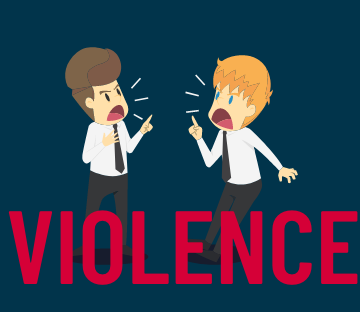I recently moderated an ASIS Chief Security Officer Huddle where the topic was “mass casualty” events. This was after the tragic shootings in both Atlanta, Georgia, and Boulder, Colorado. When preparing for the online event, there were 7 multiple casualty shootings in the 7 days between the two events! Although our collective attention is still very focused on Covid19 and the recent impacts of the more aggressive variants, we must not lose sight of the fact that other forms of crisis such as an armed assailant can strike at any time. Also, as I prepared for the event I was struck by the following question: Will the looming impacts of Covid19 on mental health drive an increase in violent events? That would be a dangerous confluence of events and a certainly frightening prospect.
During the online session, I ran two polls, and the results were remarkably interesting. My first question was simply to evaluate how many attendees had been affected directly or indirectly by an armed assailant type event. Surprisingly, 47% of the security professionals had been directly affected at their place of work or the event took place close enough that there were safety concerns for their employees.
While it was refreshing to talk about security issues other than Covid19, this sombre subject generated some excellent discussion around the challenges of preparing for these events such as corporate culture, HR, and legality issues. While I cannot speak for everyone that took part, there seemed to be a common consensus that training and preparation were key elements to an effective response. One best practice that was mentioned was the conditioning of front-line personnel and executives with crisis management roles & responsibilities well before “live” exercises take place. However, it is especially important to note that I have worked with clients that have jumped into those best practices too quickly only to find it had detrimental effects even occasionally traumatizing employees with the intensity of training events. The key takeaway here is: Crawl, Walk and then Run. A staged approach also allows key stakeholders like HR and Legal embrace the requirement for a mature crisis management program. If your organisation is ready for practical armed assailant training, there is AVERT, an excellent program that is well proven in the United States. The training prepares your employees for armed assailant situations but also has the added business dividends of increasing team confidence and cohesion.
The second poll was related to organisational preparedness for an armed assailant event. While most companies had a plan in place, 62% had not tested their plan with realistic training and exercising. One of the best crisis management programs that I have seen involved having the company’s security personnel launch a silent lockdown drill once per shift! This drill was conducted without any guests or other employees noticing any disruption to day-to-day activities. This company achieved complete lockdown of their campus in live drills in less than 60 seconds. Practice makes perfect but the real lesson here was the mental conditioning of the front-line security personnel. Having front-line security personnel understand that they do not decide when something bad can happen BUT they needed to commit to always being ready was a key shift in mentality. What I love about this approach is it costs nothing extra to achieve this level of readiness.
My hope is that this article inspires companies to take a critical look at their crisis management programs to see if they are ready for high-impact events like an armed assailant. Should anyone wish to discuss their current program or develop a world-class approach from scratch, we here at RC Advisory Services would be pleased to aid in your preparations.
